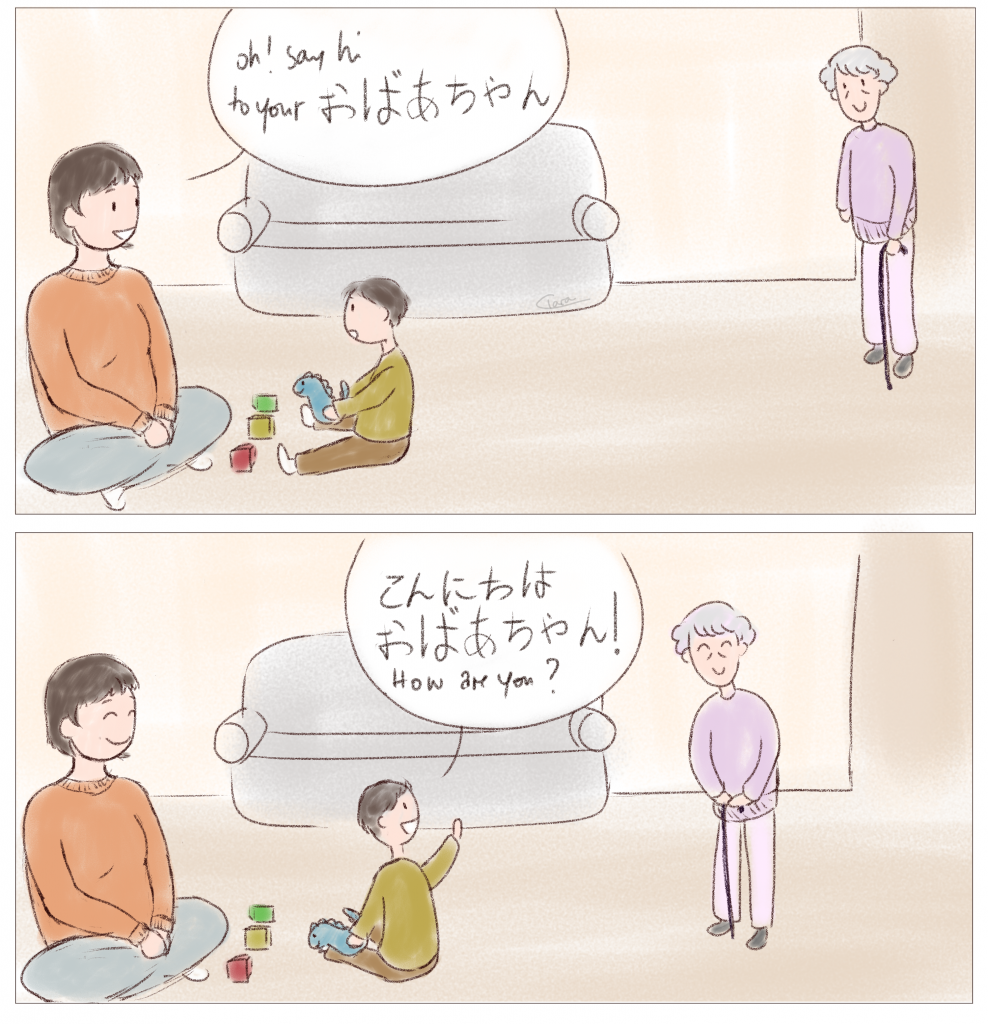Is it ok to mix languages when I speak to a child?

Caregivers who speak two (or more) languages may use a mix of languages in some conversations. Switching between languages is, pretty straightforwardly, called ‘Codeswitching’. Codeswitching can be used between sentences, where one sentence is in one language, and the next in another language. For example, ‘You have your backpack? Itterasshai’ (Translation: ‘You have your backpack? Have a good day.’) It can also be used within a sentence, where part of a sentence is in one language, and part in another. For example, ‘Let’s go to the onsen’ (Translation: Let’s go to the hotspring).
The way and the amount bilinguals codeswitch varies a lot from culture to culture, household to household, and even individual to individual. Sometimes it is associated with community identity. For example, frequent code switching is part of the Latino community identity in English-speaking North America. And in Lebanon for instance code switching between three languages, English, French, and Arabic, is common and can even occur in one sentence!
There is little research about codeswitching patterns of bilingual caregivers when they speak to children specifically. There is some evidence that they might codeswitch more as a child grows. Part of the reason for this trend is because of more broad changes in how caregivers speak to children of different ages: namely, they talk to older children in longer, more complex speech. The longer the utterance, the greater the possibilities to codeswitch! And another part of the reason for this trend is that older children speak more, so if a child replies in another language, a caregiver is more likely to switch to that language.
The most important point to remember is to follow your heart and speak to a child in the way you are most comfortable. Join us next time when we explore codeswitching in children and its implications for language development.
The scientific sources of our comic:
Poplack, S. (1988). Contrasting patterns of code-switching in two communities. In M. Heller (Ed.), Codeswitching: Anthropological and sociolinguistic perspectives (pp.215-244), Berlin: Mouton de Gruyter.
